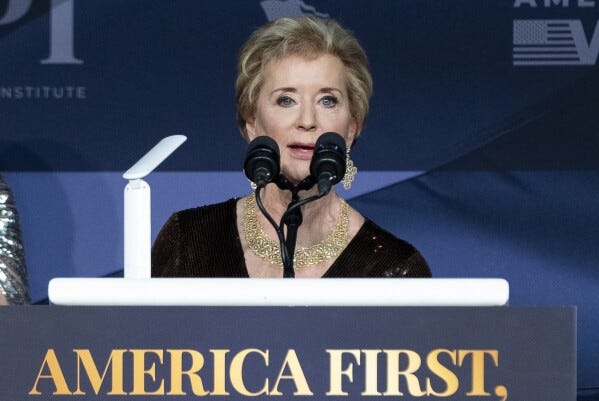Photo: AP News
Significant changes are already being made within the departments of the federal government. New secretaries are being assigned, new policies are being put in place, and new controversies are emerging as well. This is evident especially in the Health and Human Services (HHS) and Education Departments.
The Health and Human Services department is a $1.7 Trillion agency which oversees many important aspects of healthcare like vaccines, medical research, medicines, public health infrastructure, food and tobacco products and pandemic preparedness. The leaders of departments including the Centers for Disease Control and Prevention (CDC), Center for Medicare and Medicaid Services (CMS), Food and Drug Administration (FDA) and National Institutes of Health (NIH) all report to the secretary of health and human services.
Following Trump’s inauguration in 2025, the U.S. Senate recently confirmed Robert F. Kennedy Jr. as Secretary of HHS. Prior to his confirmation, Kennedy was questioned by the Senate about his views and understanding of certain healthcare issues. One of the most controversial topics discussed was Kennedy’s view on vaccinations as he is well known for being against vaccinations in the past, saying that they can have poor long-term effects in the future. He has even linked vaccinations to autism. This is a view many people disagree with, which hurt his chances of being confirmed as secretary. But his views on other important medical issues including abortion were supported by many, giving him just enough votes to be confirmed as secretary.
Looking further into Kennedy’s vaccine policies, he claimed in his hearing he was not anti-vaccination and said he even supported certain vaccines like the one for polio. However, Kennedy still does not deny the fact that there is a link between certain vaccines and conditions like autism. Although people are becoming anxious about Kennedy’s plans for vaccinations, Kennedy said in his hearing that he would not interfere with current vaccination policies.
In his hearing, Kennedy spoke little of his plans for agencies. Although he did say he intends on instructing the NIH to redirect their resources from infectious diseases to researching root causes of chronic diseases.
In addition to pivoting the focus of HHS, Kennedy’s plans for the department also focus on decreasing spending in this agency. He said he plans on firing 600 NIH researchers to reduce costs. Government officials are especially trying to find ways to cut spending in Medicaid. This is happening as part of Trump’s plan to decrease all government spending, which was a significant commitment he made to voters when running for president.
Medicaid is a public health program for people with lower incomes. It is paid partly by the federal government and partly by the state governments. Trump’s team said they would keep medicaid and not eliminate it entirely, but they plan to make small cuts to reduce waste and abuse of spending. House republicans are looking to cut $880 billion in Medicaid. Trump’s team may possibly make cuts in medicare as well. Trump selected Mehmet Oz To be in charge of specifically the Medicare and Medicaid services. Oz’s confirmation hearing is soon to be determined.
As for the Secretary of Education, Trump selected former member of the Connecticut Board of Education, Linda McMahon for the role. McMahon was confirmed February 13 where she spoke in front of the Senate Education committee. The Secretary of Education is in charge of leading the U.S. Department of Education, one of the country’s smallest federal agencies. Like Kennedy, McMahon is also seeking to cut certain operations in this department as part of Trump’s focus on decreasing federal spending. Although she is interested in reducing many parts of the department, she said in her confirmation hearing that she would preserve funding for low-income schools, Pell grants for low-income college students, and public service loan forgiveness. McMahon also has intentions of trying to support parents enrolling children in private schools, trying to stop antisemitic harassment on college campuses, and emphasizing vocational education.
Trump did speak of potentially eliminating the Department of Education completely, and possibly returning education funding entirely to the states, an idea which has sparked much controversy. Critics say students' test scores are not improving under the oversight of the U.S. Department of Education. Critics also say federal oversight restricts schools to covering only the department's curriculum, and eliminating it would save government money. However, opponents say low-income schools may not receive the funding they need.
The government has already reportedly cancelled $881 million in contracts in the department. Whether McMahon intends on eliminating the entirety of the education department is unclear, but based on the content of her confirmation hearing it is clear that she plans on making some significant cuts across the department.
Among all federal departments, it seems a common theme is decreasing as much federal spending as possible. This idea will likely be prevalent throughout president Trump’s entire presidency, and so far has been the hallmark of his new policies.




